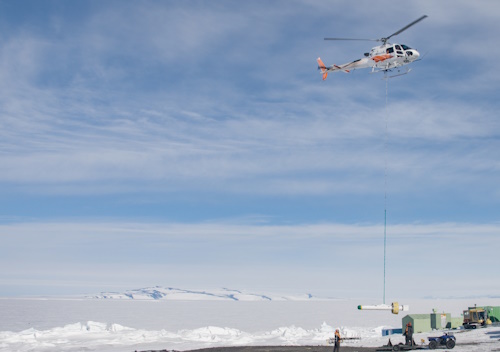
Adrian has developed a snow radar that, when integrated with other instruments, allows researchers to separate snow cover and sea thickness and so measure sea ice mass.
How much sea ice is there, how much does it drive climate change, how much is it affected by climate change, and what does that mean for the future of our planet?
The answers to these questions should become clearer as a result of a $929,000 Marsden Fund award to devise new ways of measuring sea ice.
Antarctic sea ice acts as a giant solar reflector covering up to 90% of the Southern Ocean. But until recently, it’s been difficult to estimate how much is gained or lost from year to year, as satellites have been able to measure only the area of sea ice, but not its thickness.
Lincoln Agritech researcher Dr Adrian Tan is part of the team, led by Assoc Prof Wolfgang Rack of the University of Canterbury that will measure the largest stretches of Antarctic sea ice in history, and shed light on its role in a warming climate. They are both Principal Investigators in the research.
Adrian has developed a snow radar that, when integrated with other instruments, allows researchers to separate snow cover and sea thickness and so measure sea ice mass. It has been used on a drone, and then flown by helicopter. Now, they hope to integrate it with a fixed-wing aircraft that can survey much wider areas.
They will conduct an aerial survey of up to 5000 km of Antarctica’s coastline, while developing better satellite techniques to measure sea ice thickness.
“Sea ice thickness remains a key piece to the climate change puzzle,” says Wolfgang. “This work will shed some light on its current state and build a foundation for understanding how it might change in the future.”
“The data collected in our research will be extensive, and will greatly help in measuring the impacts of climate change,” says Adrian.
It will provide the basis for developing a satellite-derived measure of coastal sea ice thickness and data sets that can be used to develop robust computer simulations.
“As an organisation, Lincoln Agritech wants to do science that has an impact, and is good for the world,” says CEO Peter Barrowclough. “We are delighted to be partnering with Wolfgang and the University of Canterbury on this research, which is crucial to understanding the rate of climate change and its effects.”


